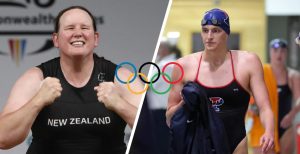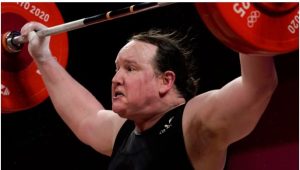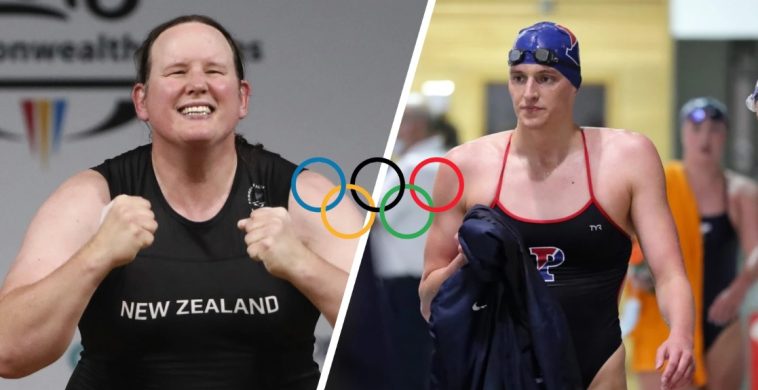IOC Appears Ready for a Major Shift in Women’s Sports
The International Olympic Committee (IOC) seems to be moving toward one of the most significant changes the global sports world has faced in years. Growing signals from inside the organization suggest that a full ban on transgender women in female categories is becoming increasingly likely.

A Campaign Promise That’s Quickly Turning Into Policy
During her campaign for IOC president, Kirsty Coventry emphasized the need to “protect women’s sport.” After winning the position, she moved fast, assembling a specialized working group to examine eligibility rules and potential reforms.
Publicly, the IOC maintains that discussions are still ongoing. However, according to BBC Sport, internal sources claim the process is advancing rapidly and that a sweeping policy shift could be implemented as early as 2026. A recent briefing from the IOC’s medical leadership reportedly left many members expecting a dramatic overhaul.
What the Scientific Review Suggests

Preliminary findings from the IOC’s scientific review indicate that individuals born male may retain certain physical advantages even after lowering testosterone levels. This revelation intensified the already heated debate and heightened calls for stricter regulations.
It’s still unclear whether athletes with Differences in Sex Development (DSD) will be subject to the same restrictions. Experts note that DSD cases vary widely, making them more complex to regulate under a single policy.
BBC Sport reports that no new rule will be in place before the 2026 Winter Olympics in Italy, but the IOC could easily announce changes ahead of the Los Angeles 2028 Games.
Major Sports Bodies Are Already Tightening Rules
Several international sports federations have not waited for the IOC to act. In recent years, organizations in swimming, athletics, and other elite sports have restricted participation from athletes who experienced male puberty, citing concerns about fairness and athlete safety.
In the UK, additional sports bodies updated their policies after a Supreme Court decision affirmed that the legal definition of “woman” refers to biological sex—a ruling that pushed many organizations to revise their eligibility criteria.
Transgender advocacy groups strongly oppose these measures, arguing that such bans risk violating human rights and excluding athletes who simply want a chance to compete.
The U.S. Has Pushed the Debate Even Further
Tensions escalated when U.S. President Donald Trump signed an executive order prohibiting transgender women from competing in female categories at any level of sport. According to his announcement, this rule would apply to the Los Angeles 2028 Olympics as well, with visas denied to transgender athletes entering the country to compete.
High-Profile Cases Fueling the Discussion

Debates around transgender participation intensified after Laurel Hubbard of New Zealand became the first openly transgender woman to compete at the Olympics during Tokyo 2020, although she did not complete any successful lifts in the women’s +87kg weightlifting event.
Athletes with DSD have also been at the center of global attention. During Paris 2024, controversy erupted when Algeria’s Imane Khelif won gold in women’s boxing after previously being disqualified from a world championship over gender-eligibility questions. Taiwan’s Lin Yu-ting faced similar scrutiny. The IOC cleared both athletes, stating that eligibility depended on the gender listed in their passports. Both have repeatedly affirmed they are women and have always competed in women’s categories.
Reports speculated about Khelif’s chromosomal makeup, but none of these claims were confirmed, leaving the debate open and even more turbulent.
What Comes Next?
Coventry has stated that the IOC aims to find agreement among international federations, but not everyone supports blanket solutions. The president of the International Paralympic Committee warned earlier this year that uniform rules could be inappropriate given how different individual cases can be.
As global sports bodies take stronger stances, the clash between fairness and inclusion is intensifying. Whatever decision the IOC ultimately makes, its impact will reshape not only the Olympic Games but the entire landscape of women’s sports.


